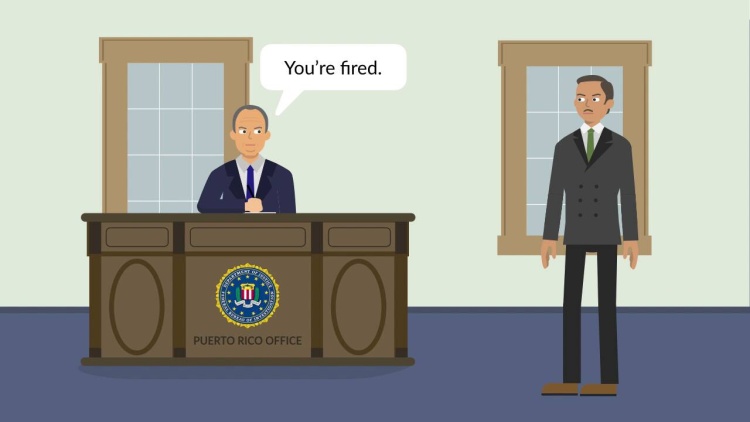Gomez v. Toledo
United States Supreme Court
446 U.S. 635, 100 S. Ct. 1920, 64 L. Ed.2d 572 (1980)
- Written by Alexis Tsotakos, JD
Facts
Carlos Rivera Gomez (plaintiff) was hired as an agent for the Puerto Rican police in the Police Department’s Bureau of Criminal Investigation (Department) in 1968, and worked in this position until April 1975, when he submitted a sworn statement to his supervisor alleging that two fellow agents had falsified evidence in a criminal case under their investigation. As a result of this statement, Gomez was transferred from the Bureau of Criminal Investigation to two different locations, where he had no investigative authority. After Gomez was transferred, the Department found that his allegations were true, and he was subsequently subpoenaed to give testimony in the criminal case regarding the falsified evidence. Because of this testimony, Gomez was charged with illegally wiretapping the phones of the two accused agents and was subsequently suspended and discharged without a hearing. The District Court of Puerto Rico found that there was no probable cause to believe that Gomez was guilty of unlawful wiretapping. Gomez appealed his discharge, and after a hearing, he was reinstated. Gomez filed suit against the Superintendent of the Police of the Commonwealth of Puerto Rico, Toledo (defendant), alleging violation of procedural due process and emotional distress. Toledo moved to dismiss the complaint for failure to state a claim under Rule 12(b)(6). The district court granted the motion, finding that because Toledo was entitled to qualified immunity under § 1983, Gomez was required to plead that Toledo acted in bad faith, which Gomez had failed to do. The United States Court of Appeals for the First Circuit Affirmed, and the United States Supreme Court granted certiorari.
Rule of Law
Issue
Holding and Reasoning (Marshall, J.)
What to do next…
Here's why 907,000 law students have relied on our case briefs:
- Written by law professors and practitioners, not other law students. 47,100 briefs, keyed to 996 casebooks. Top-notch customer support.
- The right amount of information, includes the facts, issues, rule of law, holding and reasoning, and any concurrences and dissents.
- Access in your classes, works on your mobile and tablet. Massive library of related video lessons and high quality multiple-choice questions.
- Easy to use, uniform format for every case brief. Written in plain English, not in legalese. Our briefs summarize and simplify; they don’t just repeat the court’s language.






